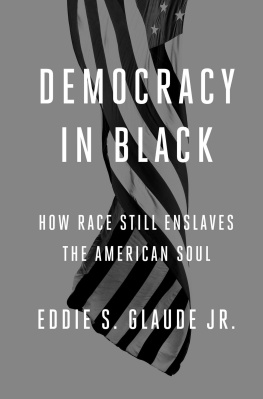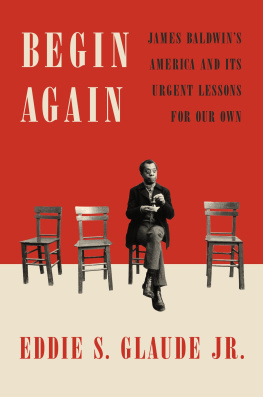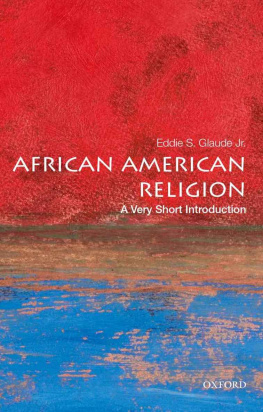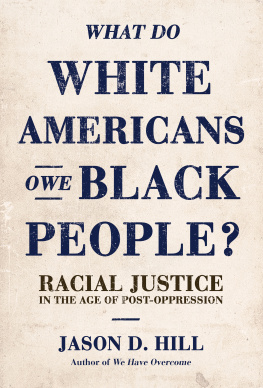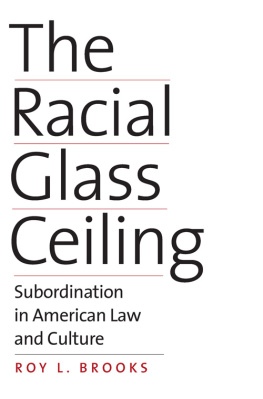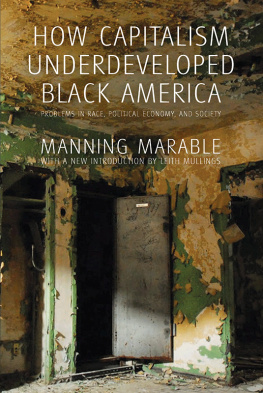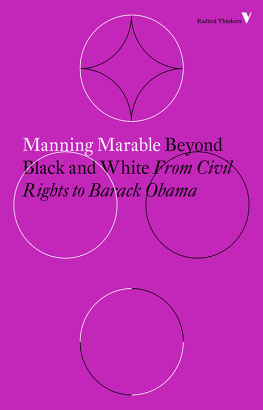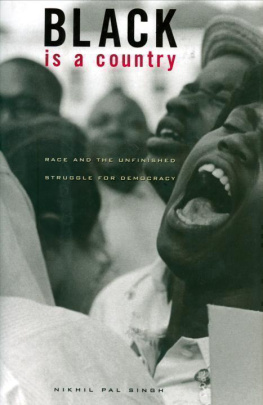E DDIE S. G LAUDE J R . is currently the chair of the Department of African American Studies and the William S. Tod Professor of Religion and African American Studies at Princeton University. His other books include In a Shade of Blue: Pragmatism and the Politics of Black America and Exodus! Race, Religion, and Nation in Early 19th Century Black America, winner of the Modern Language Associations William Sanders Scarborough Book Prize. He is a native of Moss Point, Mississippi, and a graduate of Morehouse College.
SUGGESTED READING
These are the books that informed my writing of Democracy in Black. They offer a more in-depth treatment of the topic of racial inequality and American politics today. Most are academic books. But any interested reader, with discipline and grit, can tackle this topic. Think of it as a preliminary reading list on the subject.
Abrajano, Maris, and Zoltan L. Hajnal. White Backlash: Immigration, Race, and American Politics. Princeton: Princeton University Press, 2015.
Adichie, Chimamanda Ngozi. Americanah. New York: Anchor, 2014.
Alexander, Michelle. The New Jim Crow: Mass Incarceration in the Age of Color Blindness. New York: The New Press, 2012.
Allen, Danielle S. Talking to Strangers: Anxieties of Citizenship since Brown v. Board of Education. Chicago: University of Chicago Press, 2004.
Alterman, Eric, and Kevin Mattson. The Cause: The Fight for American Liberalism from Franklin Roosevelt to Barack Obama. New York: Viking, 2012.
Anderson, Carol. Bourgeois Radicals: The NAACP and the Struggle for Colonial Liberation, 19411960. Cambridge: Cambridge University Press, 2015.
. Eyes off the Prize: The United Nations and the African American Struggle for Human Rights, 19441955. Cambridge: Cambridge University Press, 2003.
Anderson, Elizabeth. The Imperative of Integration. Princeton: Princeton University Press, 2010.
Armour, Jody David. Negrophobia and Reasonable Racism: The Hidden Costs of Being Black in America. New York: New York University Press, 1997.
Baldwin, James. The Fire Next Time. New York: Vintage, 1963.
. Notes of a Native Son. Boston: Beacon Press, 1955.
Banaji, Mahzarin R., and Anthony G. Greenwald. Blind Spot: Hidden Biases of Good People. New York: Delacorte Press, 2013.
Baraka, Amiri, and William J. Harris. The Leroi Jones/Amiri Baraka Reader. New York: Basic Books, 1999.
Barber II, William J., with Barbara Zelter. Forward Together: A Moral Message for the Nation. St. Louis: Chalice Press, 2014.
Bartels, Larry M. Unequal Democracy: The Political Economy of the New Gilded Age. New York: Russell Sage Foundation, 2008.
Bauman, Zygmunt. Liquid Fear. Malden, Mass.: Polity Press, 2006.
Bercovitch, Sacvan. The Rites of Assent: Transformations in the Symbolic Construction of America. New York: Routledge, 1993.
Berry, Wendell. The Hidden Wound. Berkeley: Counterpoint, 2010.
Blight, David. Race and Reunion: The Civil War in American Memory. Cambridge: Harvard Belknap, 2001.
Branch, Taylor. At Canaans Edge: America in the King Years 196568. New York: Simon & Schuster, 2006.
Brimmer, Andrew F. When the Marching Stopped: An Analysis of Black Issues in the 70s. National Urban League, 1973.
Brown, Michael K., Martin Carnoy, Elliott Currie, Troy Duster, David B. Oppenheimer, Marjorie M. Shultz, and David Welman, eds. White-Washing Race: The Myth of a Color-Blind Society. Berkeley: University of California Press, 2003.
Brown, Wendy. Undoing the Demos: Neoliberalisms Stealth Revolution. New York: Zone Books, 2015.
Caute, David. The Great Fear: The Anti-Communist Purge Under Truman and Eisenhower. New York: Simon & Schuster, 1978.
Cavarero, Adriana. Relating Narratives: Storytelling and Selfhood. Translated by Paul Kottman. London: Routledge, 2000.
Cohen, Cathy. Democracy Remixed: Black Youth and the Future of American Politics. New York: Oxford University Press, 2012.
Collins, Patricia Hill. Black Feminist Thought: Knowledge, Consciousness, and Empowerment

